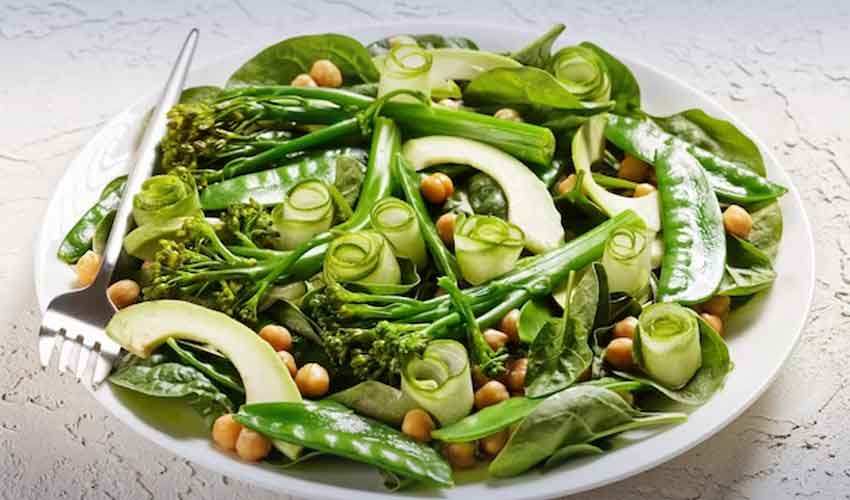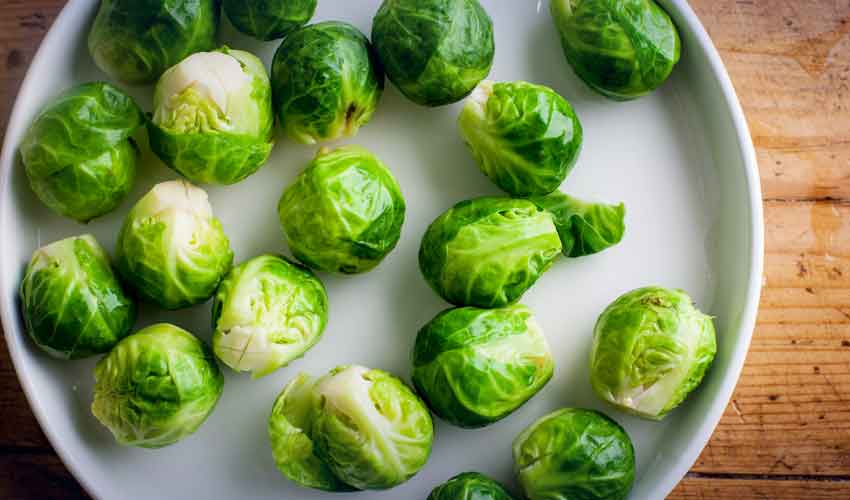Ah, the humble poop. Often a topic for hushed whispers and nervous giggles, it's nonetheless a crucial indicator of our gut health. Regular bowel movements (around three times a day to three times a week) are a sign of a happy digestive system, while constipation can cause discomfort, bloating, and even health problems.
There can be many reasons for constipation, from medical issues to change of medication, but nutrition plays a vital role. A study conducted by Nutrients in 2022 found that sugary and sodium-high diets were linked to higher rates of constipation, while diets containing whole grains, fats and starchy vegetables helped reduce constipation.
So, when constipation strikes, we embark on a quest for the magical food that will send our bowels into overdrive. Nutritionists suggest piling on foods that are rich in fibre and fluid content.
And in this quest, vegetables often take centre stage, lauded for their fibre and fluid content and gut-friendly properties. But with a vast array of veggies to choose from, which one reigns supreme as the pooping champion?
The Fiber Factor:
Fiber, especially the insoluble kind, is the key player in regulating digestion. It bulks up stool, stimulates gut contractions, and keeps things moving smoothly. So, vegetables boasting high fiber content naturally become prime suspects in the search for the ultimate poop-inducing food.
Contenders in the Colosseum of Poop:
Several vegetables stand out for their fiber prowess:
- Broccoli: This cruciferous champion packs a wallop of 5 grams of fiber per cup, with a good mix of soluble and insoluble types. Studies suggest its sulforaphane content further aids digestion by promoting gut bacteria diversity.
- Brussels Sprouts: These miniature cabbages offer a similar fiber punch to broccoli, with 3.5 grams per cup. They're also rich in prebiotics, which feed the good bacteria in your gut, contributing to overall gut health.
- Green Peas: Don't underestimate these tiny green spheres! They contain a surprising 8.5 grams of fiber and 25 grams of carbohydrate per cooked cup, unlike non-starchy veggies that have 5g or less of carbohydrates per cup, along with magnesium, which helps relax muscles in the digestive tract. Research suggests peas may be particularly effective in relieving constipation.
Peas are also rich in insoluble fiber that bulks up your stool to help speed up transit time through the digestive tract, making it very helpful for constipation.Spinach: While not a fiber powerhouse like others, spinach is a good source of magnesium and vitamin C, both of which contribute to healthy digestion. A study found that consuming spinach daily for a week improved bowel movement frequency in constipated individuals. A single cup packs a whopping 37% of your daily magnesium needs, according to the USDA.Also, staying hydrated is crucial for both preventing and relieving constipation, emphasizes Emily Maus, a registered dietitian. Proper hydration ensures softer stool that passes more easily. Soluble fiber, which attracts water, works hand-in-hand with hydration to promote smoother bowel movements.
Kaytee Hadley, a registered dietitian, specifically points to green peas as a double threat - high in fiber and high in water content (nearly 80%, according to the USDA!).
Another surprising hero is magnesium. This mineral, hiding in those humble green peas, might be the secret weapon you've been missing. A recent study by Dandrea-Russert (2021) followed the diets and bowel habits of nearly 10,000 adults. Guess what they found? People who ate more magnesium (through food, not supplements) were less likely to struggle with constipation. This isn't just a coincidence - magnesium seems to act like a gentle laxative, drawing water into your stool to make it softer and easier to pass.

This mineral, as a 2021 study discovered, seems to act like a gentle laxative, drawing water into your stool and making it smoother and easier to pass. While spinach's fiber content is modest, around 70% of it is the insoluble kind, the very type that gets things moving in your gut.
- Asparagus: Not just delicious, asparagus packs a double punch for your gut! With 3.6 grams of fiber per cup (mostly the good, insoluble kind), it gets things moving in your digestive tract. But that's not all! Asparagus also boasts prebiotic fiber called inulin, which nourishes your gut bacteria and contributes to overall digestive health. So, add this green giant to your diet for smoother sailing in the bathroom and a happier gut.

Jerusalem Artichokes: Don't be fooled by the name, these aren't artichokes, but they are fantastic gut friends! Similar to asparagus, they're brimming with inulin, the prebiotic fiber that Hadley swears by for its magic touch. By feeding your gut microbiome, Jerusalem artichokes help prevent constipation, both in the immediate and long-term. So, give these unique veggies a try for a happy and healthy gut, constipation-free!
While fiber is crucial, it's not the only factor influencing your poop patrol. Other elements like water intake, exercise, and stress management also play a vital role. Remember:
- Hydration is key: Water keeps things moving along smoothly. Aim for 8 glasses daily.
- Get moving: Physical activity stimulates gut contractions and digestion.
- Manage stress: Stress can wreak havoc on your gut. Relaxation techniques like yoga or meditation can help.
Instead of crowning a single "poop champion," it's more helpful to adopt a holistic approach. Include a variety of fiber-rich vegetables like broccoli, brussels sprouts, peas, and spinach in your diet, stay hydrated, exercise regularly, and manage stress. Ultimately, the best vegetable for your poop may be the one you enjoy the most and can consistently incorporate into your diet.
So, embrace the humble vegetable, explore its fibrous goodness, and remember: a happy gut leads to a happy (and regular) you!





























